3 takeaways from Massachusetts Restaurants United’s first town hall meeting
"When we get through this, we need restaurants open, because that’s where people are going to go to feel normal again," said 'Top Chef' star Tom Colicchio.
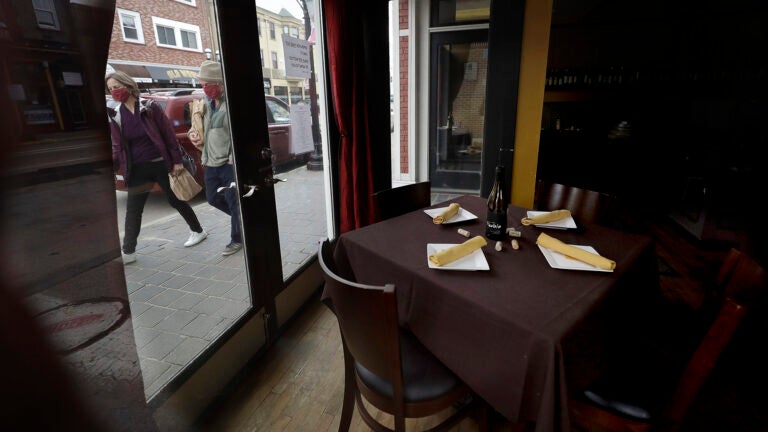
Related Links
-
Restaurants
4 takeaways on reopening restaurants from a member of the Reopening Advisory Board
-
Restaurants
Video: Boston chefs and restaurateurs share how their world has changed during the pandemic
-
COVID
Ayanna Pressley and Kamala Harris have a plan to help truly small businesses. Here’s how it would work.
Rep. Ayanna Pressley and “Top Chef” star Tom Colicchio joined members of the Massachusetts Restaurants United group Thursday morning for a discussion on what local restaurants need in order to successfully reopen.
Shortly after Massachusetts restaurants were ordered to shut down their dine-in operations or remain open for take-out and delivery only, the group shared a letter they sent to Gov. Baker seeking emergency relief for both businesses and employees. Much has happened since then: Dining rooms have now been closed for roughly two months, and an estimated 8 million industry jobs have evaporated nationally, along with an estimated $80 billion loss in revenue by the end of April.
During the town hall, which was held on Zoom, a handful of members spoke about the impact COVID-19 has had on their business: Bessie King (Villa Mexico Cafe), Michael Leviton (Craigie Burger), and Jody Adams (Porto, TRADE). Pressley and Colicchio, who is one of the founders of the Independent Restaurant Coalition, also shared what Congress and the coalition are doing to help restaurants make it out on the other side of the global pandemic.
Here are a few takeaways from the Massachusetts Restaurants United group’s first town hall:
1. Personal Protective Equipment is still the No. 1 issue.
Pressley shared that, when talking with small business owners who are strategizing their reopening, PPE is at the top of the list — especially how the state might supply it to businesses in need.
King agreed.
“I would love to see some sort of PPE supply bank just for restauranteurs or essential workers to shop at or to receive, even from the government,” King said. “Last week I had to go to three Restaurant Depots to find gloves for me to be able to serve my food.”
She shared that she provides each of her Villa Mexico Cafe employees with a box of gloves so they can safely go in and out of the restaurant, but that this safety precaution is costly.
“It’s hard to find just basic PPE supplies like gloves, so having a resource bank would be incredibly helpful for us to stay safe,” King said.
2. Pressley’s Saving Our Streets Act could benefit smaller, underrepresented restaurants.
The Massachusetts congresswoman broke down the Saving Our Streets Act (SOS), a new bill she wrote with California Sen. Kamala Harris. The $124.5 billion grant program is “specifically designed to relieve the micro-businesses and minority-owned businesses, including restaurants, that have been left out and left behind by current federal programs,” Pressley explained.
Businesses with fewer than 10 employees making less than $1 million in revenue per year would be eligible for the program, which would distribute up to $250,000 in emergency grants.
To ensure that underrepresented communities would receive access to this grant, 75 percent of the funding would go toward historically underrepresented businesses, including women-owned and minority-owned businesses. Pressley stressed that these are grants — not loans — and that they can be used for health care benefits, payroll, rent, utilities, hazard pay, PPE, or furloughs.
Pressley said she’s been encouraged by the support the bill has received, including securing endorsements from small business and civil right groups like the Main Street Alliance and the NAACP Legal Defense and Educational Fund.
“My caucus and I have had to work very hard to push for these bills to not just be bailouts for a corporation,” she said.
3. The Independent Restaurant Stabilization Fund could help restaurants stay open, not just reopen.
Colicchio is one of the founders of the Independent Restaurant Coalition, a national movement formed with the mission of saving restaurants affected by the pandemic through affective legislative change. One of the movement’s primary objectives has been to get Congress to establish the Independent Restaurant Stabilization Fund, a $120 billion program that would help independent restaurants stay open, not just reopen. The coalition defines “independent restaurants” as establishments with fewer than 20 locations that aren’t publicly traded.
“We are going to open into a depressed market,” Colicchio said. “Why do [restaurants] need the additional help? As an industry, we employ 11 million people. Stimulus dollars that are going to be used to stimulate the economy will be best used going through the restaurant industry because every dollar we take in, 95 cents go out the door.”
The coalition is also advocating Congress to fix issues that stem from the Paycheck Protection Program, a loan that many restaurants are concerned they won’t be able to pay back. They’ve asked Congress that the repayment period extend from its current two years to 10 years, and that the maximum loan amounts should be extended to three months after restaurants are opening at full capacity.
“We are the anchors of our communities,” Colicchio said. “When we get through this, we need restaurants open, because that’s where people are going to go to feel normal again.”
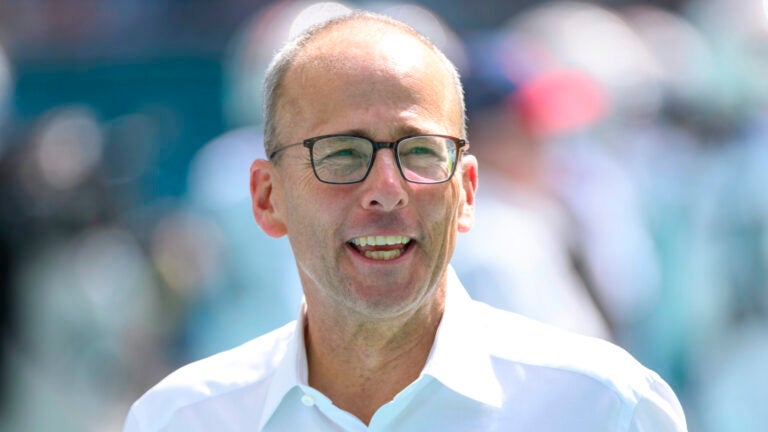


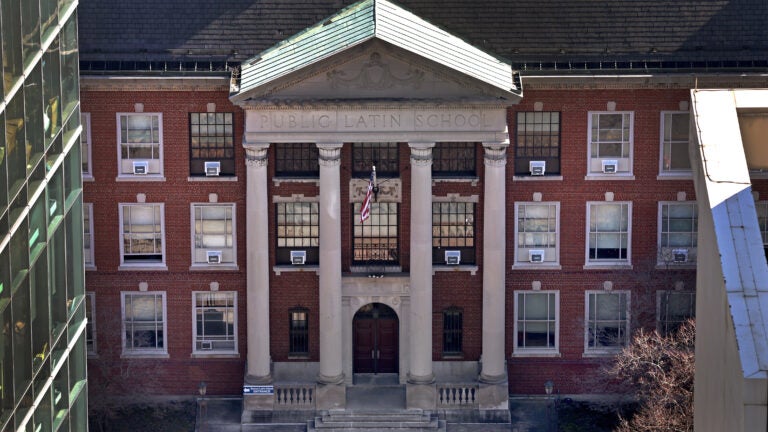
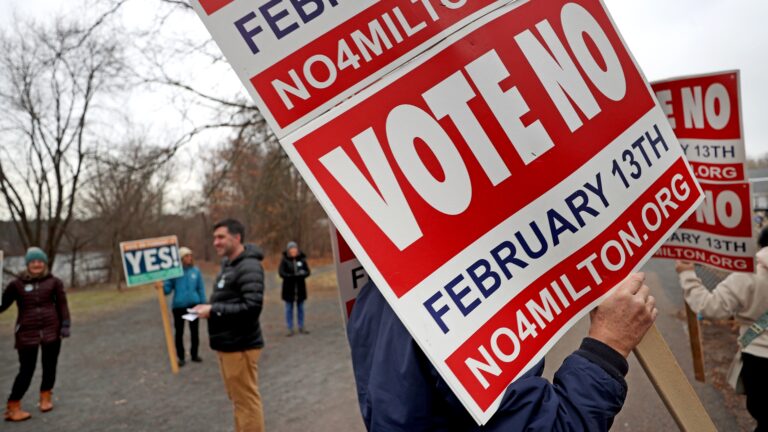
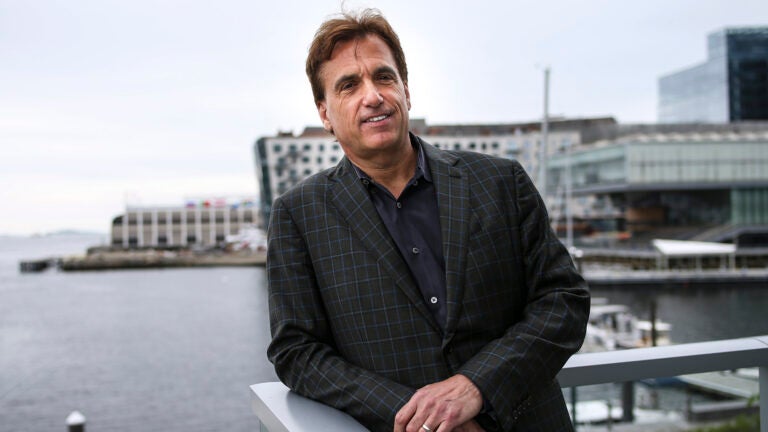
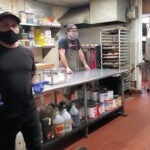
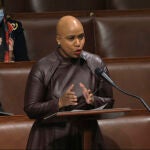
Conversation
This discussion has ended. Please join elsewhere on Boston.com